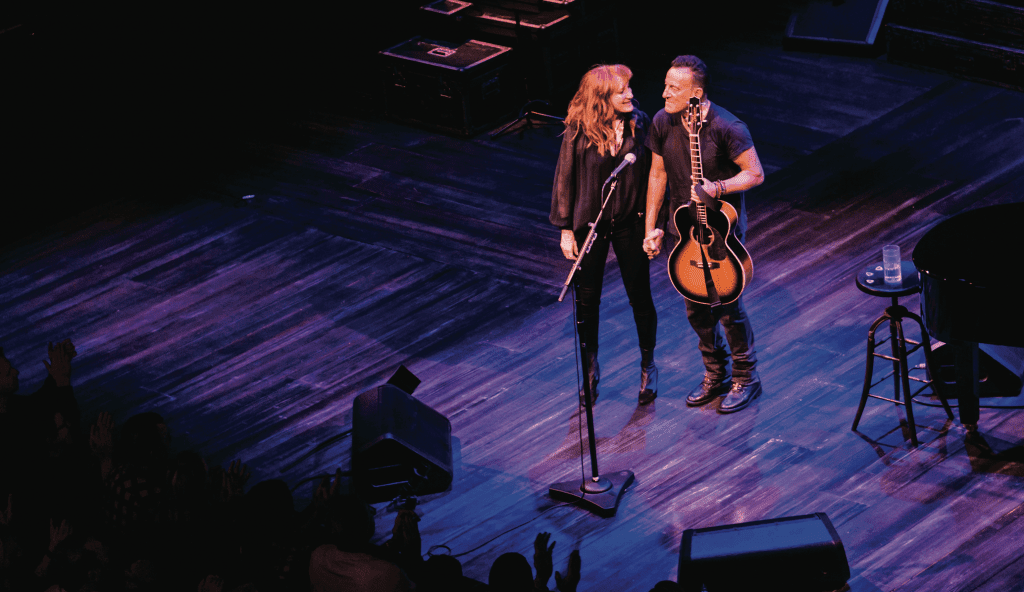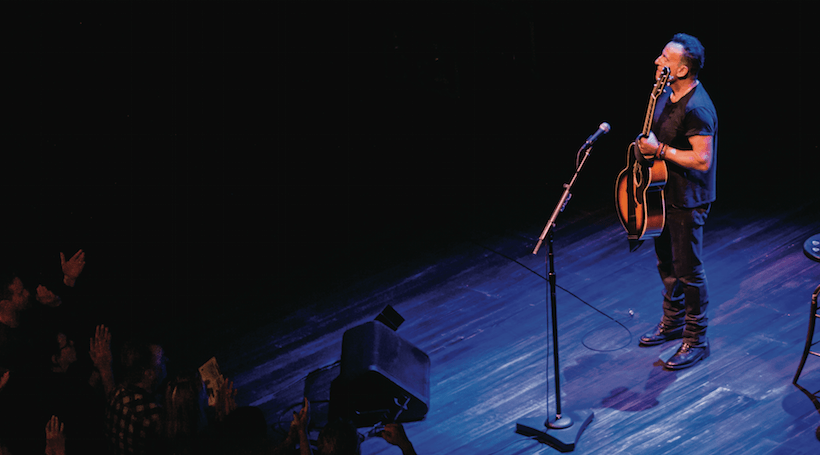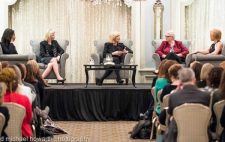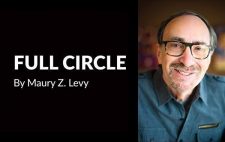Photos by Raph_PH/CC BY 2.0
It seems everyone in Jersey loves Bruce Springsteen, and they have for decades. Maybe it’s the rough hometown roots from Asbury Park or his down-to-earth, hard-working persona. Then again, the iconic music is reason enough.
The story of Springsteen is gritty and gutsy – and really good. In a new, unexpected twist, the rocker has taken his book of songs and stories to Broadway, where sold-out crowds are loving him even more.
It was 1978, and Bruce Springsteen found himself in a somewhat vexing position.
The then-29-year-old singer-songwriter from Monmouth County had achieved the kind of success most young rockers only fantasize about.
Three years earlier, Springsteen achieved an unprecedented feat in show business when his picture appeared on the covers of “Time” and “Newsweek” in the same week. Since October ’76, when he headlined the Spectrum in Philadelphia, he had established himself as a coast-to-coast arena-level attraction. And his latest album, “Darkness on the Edge of Town,” was destined to become yet another of his milestone LPs. But Springsteen wanted more, and didn’t know how to acquire it. That’s when he visited Kal Rudman in his office on Route 38 in Cherry Hill.
At the time, Rudman – known as “The Man with the Golden Ears” – was the man who execs at Top 40 radio stations around the country relied on to tout what new singles their outlets should be playing. He is the founder and publisher of the Friday Morning Quarterback, a weekly radio-industry “tip sheet,” and it was well known that if Rudman proclaimed a new record a hit, it was pretty much a lock that it would be a top-seller.

For decades, it was standard operating procedure for artists – newcomers and superstars alike – to travel to Cherry Hill to solicit Rudman’s blessings. But Springsteen wasn’t there to lobby on behalf of a specific song. Instead, he’d made the pilgrimage to Cherry Hill to seek Rudman’s advice on how to become a chart-topper.
According to Rudman, the question was hardly a brain-twister. Noting that Springsteen had cultivated a macho persona as a performer and, as a result, had a predominantly male fan base, “I told him that it’s women who make hits, and that he should write a song that would appeal to them,” recalls the 87-year-old mogul whose main focus today is the work of his philanthropic entity, the Kal and Lucille Rudman Foundation.
Springsteen proved to be an apt student. His next album, 1980’s “The River,” contained the track “Hungry Heart.” A mid-tempo love song, it became Springsteen’s first hit single and proved a crucial step on his way to becoming the pop music icon he is today.
And, it can be argued, that long-ago stop in Cherry Hill put him firmly on the road to his current triumph, “Springsteen on Broadway.”
His latest endeavor on Broadway is a hard-to-categorize presentation in which Springsteen, 68, blends excerpts from his 2016 bestselling autobiography “Born to Run” with a selection of solo-performed songs that sync with spoken-word segments. The show debuted last October at the Walter Kerr Theatre and was supposed to conclude its run early this month. But public demand and critical enthusiasm have resulted in an extended engagement that begins Feb. 28 and – for now, anyway – concludes June 30.
It’s doubtful even the longest-tenured Springsteen fan or chronicler could have foreseen the megastar rocker conquering Broadway – especially those whose relationship or fandom date back four decades or more. After all, how could anyone have looked at the wiry kid with the high-octane stage presence and grease-monkey visage and envisioned him one day working the same hallowed turf of such theatrical giants as Zero Mostel and Richard Burton?
But those in the know say Springsteen on Broadway should not be viewed as some sort of oddity, but instead as a logical next-step in Springsteen’s career, from both artistic and commercial perspectives.
“This is Bruce’s artistic vision. He’s doing it as part of his body of work,” says Tom Cunningham, a veteran radio personality and Boss fan who, since 2003, has hosted the weekly “Bruce Bunch,” which airs Sundays mornings on radio station 105.7 The Hawk. “It combines the great elements of his book with the great elements of his skills as a songwriter and as a performer.”

If anyone should be surprised at this latest turn in Springsteen’s career, it’s Mike Appel, who was The Boss’ first manager.
“Nobody could have predicted the future, but he always loved playing in intimate atmospheres like Broadway theaters,” says Appel, who guided Springsteen’s career from early 1972 through 1975, when the pair’s professional relationship dissolved amidst an acrimonious legal battle. He adds that as he sees it, “It was only a matter of time” before Bruce wound up in such a setting.
“I think there’s always been a balance with Bruce. After playing so many tours and so many countries, he may be looking for a more intimate atmosphere rather than in the grand revue style.”
Appel, who recently attended a performance of Springsteen on Broadway as the guest of Jon Landau, the man who succeeded him as the star’s manager and who produced the show, can’t contain his enthusiasm for what he witnessed.
“He was self-deprecating…he was loveable,” says Appel. “The sound of his voice and guitar were rich and perfectly balanced. The sonics were beautiful.”
However, Appel, who produced Springsteen’s first two albums, “Greetings From Asbury Park N.J.” and “The Wild, the Innocent & the E Street Shuffle,” was most impressed by the freshness of the show’s content. He explains he expected to hear “a bunch of stories” with which he was familiar, and “that there’d be no new angles, so to speak, that I wouldn’t already know. Well, that’s not true. He said a lot of things I didn’t know. There were all sorts of aspects of his life that were unknown to me.”
Appel was likewise moved by what he says was the deft way Springsteen navigates potentially incendiary remarks on current events. Addressing “where we are as a country at this moment in time,” says Appel, Springsteen speaks “not from a particular vantage point. It was like he is upset about the way things are at present, but he wasn’t going to take a stand, left, right or middle. He wasn’t going to do that. He wasn’t going to fall into those kinds of traps, start bashing this guy or start bashing that guy and cause unnecessary ire between himself and certain audience members who are there for his music and don’t care about his politics.”
A particularly interesting aspect of Springsteen on Broadway is that he sticks to the same script at every performance. This wouldn’t even be worth mentioning if Springsteen was not
legendary for his electrifying live performances that almost always include a huge assortment of spur-of-the-moment numbers.
But for radio guy Cunningham, that is no big deal. “This is a Broadway show,” he reasons. “When you go see ‘Hamilton,’ you’re going to see ‘Hamilton’ the same way every night. You go to see ‘Springsteen on Broadway,’ you’re going to see ‘Springsteen on Broadway’ the same way. That’s what this is – a Broadway show, not a Bruce Springsteen concert.”
And what about those purists who might see Springsteen on Broadway as the proverbial sell-out?
“Well, yeah,” quips Cunningham. “He sells out every night.”














